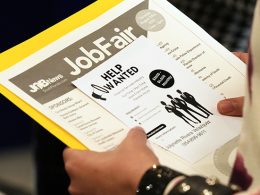Here We Go Again....or Not?
May 11, 2012
by Liz Ann Sonders
Senior Vice President, Chief Investment Strategist, Charles Schwab & Co., Inc.,
Brad Sorensen
CFA, Director of Market and Sector Analysis, Schwab Center for Financial Research, and,
Michelle Gibley
CFA, Director of International Research, Schwab Center for Financial Research
Key Points
- Softer economic data has prompted concerns that the market may be headed for a summer swoon—similar to the previous two years. We believe the backdrop is decidedly different (and better) this time around but investor and business confidence will continue to be important.
- Some appear to be hoping for weaker data in order to spur the Fed to enact another round of quantitative easing (QE3). We believe the bar is much higher and that the Fed should look to return to a more normal monetary stance. Complicating the overall picture and the Fed’s job is the coming "fiscal cliff" out of Washington at the end of this year.
- The political situation in Europe has injected even more uncertainty into an already tenuous environment. Public cries for a reduction in austerity, despite many proposed measures not taking affect yet, raises questions as to the sustainability of the eurozone as is. Spending cuts are important, but must be accompanied by serious structural changes that encourage growth and innovation to provide hope for the future.
NOTE: The next Schwab Market Perspective will be published one week later than normal—June 1, 2012.
We've seen this movie before … or have we? After starting out the previous two years in a positive direction, stocks experienced disappointing downturns beginning around this time of each year and continuing throughout the subsequent summers. Recently we've seen economic data soften, global concerns rise, Treasury yields fall, and stocks correct, prompting more questions as to whether we're seeing a very unwelcome sequel. We believe not.
Before getting into why we don't believe we're in store for Summer Swoon III (a sequel, like many, that no one wants to see), we want to again point out that trying to time the market is largely a losing game for investors. And we also continue to remind investors that sticking to a disciplined long-term plan is key, rather that chasing crowd psychology or past returns. We're reminded of the continued chasing mentality that almost inevitably leads to disappointment as ISI Research reported that bond mutual fund inflows were at a record high during the first four months of the year, while equity fund outflows were the third largest on record.
Currently, investor apprehension is rising, indicated by increasing volatility and a stock market in correction mode, as the possibility of a replay of the previous two years is considered. However, we believe there are several important fundamental differences that help to support a renewed market advance before too long. First, we aren't dealing with any major natural crises such as the Japanese earthquake and tsunami we saw last year; or the spike in food inflation that unleashed the "Arab Spring." In fact, commodity prices are largely moving lower, allowing central banks around the world to ease monetary policy, as we’ve seen in Brazil, Australia, and India among others. And while there are still major concerns regarding the debt crisis in Europe, discussed in further detail below, the European Central Bank (ECB) has made moves that indicate they will be aggressive to preserve some semblance of stability in the European markets. Finally, in the United States we're seeing further signs of housing stabilization, a continued improving job situation, and a rebound in auto sales, which is now a larger driver of GDP than residential investment.
But there's the impact of "muscle memory" given the past two years' volatility; and perception can become reality. There is a risk that investors increasingly lose confidence in the economic recovery, pressuring stocks, and causing businesses to again pare back. In the short term, market performance can have more to do with sentiment than fundamentals, again illustrating the folly of short-term timing.
Temporary Softness or a New Trend?
Data has been mixed lately, with regional manufacturing surveys largely disappointing: the Chicago PMI fell to its lowest level since November 2009, although remaining in expansionary territory and the Dallas Fed Index slipped into negative territory. The national index provided more encouragement as the ISM Manufacturing Index rose to 54.8, the best level since June 2011, while the forward looking new orders component rose to 58.2, the best level since April 2011. This is distinctly better than the trend in most global PMIs. However, more concern came in the form of the ISM Non-Manufacturing Index, which softened to 53.5 from 56. But while the important service sector showed some softness, we continue to see consumers improve their balance sheets, which should help to support spending going forward.
Consumers' debt position is much improved
Source: FactSet, Federal Reserve. As of May 7, 2012. Includes mortgage and consumer debt, auto lease payments, rental payments, homeowners insurance, and property tax payments.
Key to consumer spending continuing to hold up is likely the continued improvement in the job market, which has been in question lately. Jobless claims started to creep higher before experiencing a relatively sharp reversal recently and remaining well below the critical 400,000 level. However, payroll growth continued to be disappointing as a soft reading for March was followed with another one in April. We saw ADP report a mere 119,000 private jobs were added, while the Bureau of Labor Statistics (BLS) reported that nonfarm payrolls expanded by a weak 115,000 positions; although the previous two months were revised higher. The unemployment rate fell to 8.1% due largely to a drop in the labor participation rate, which now stands at 63.6%—the lowest level since 1981.









